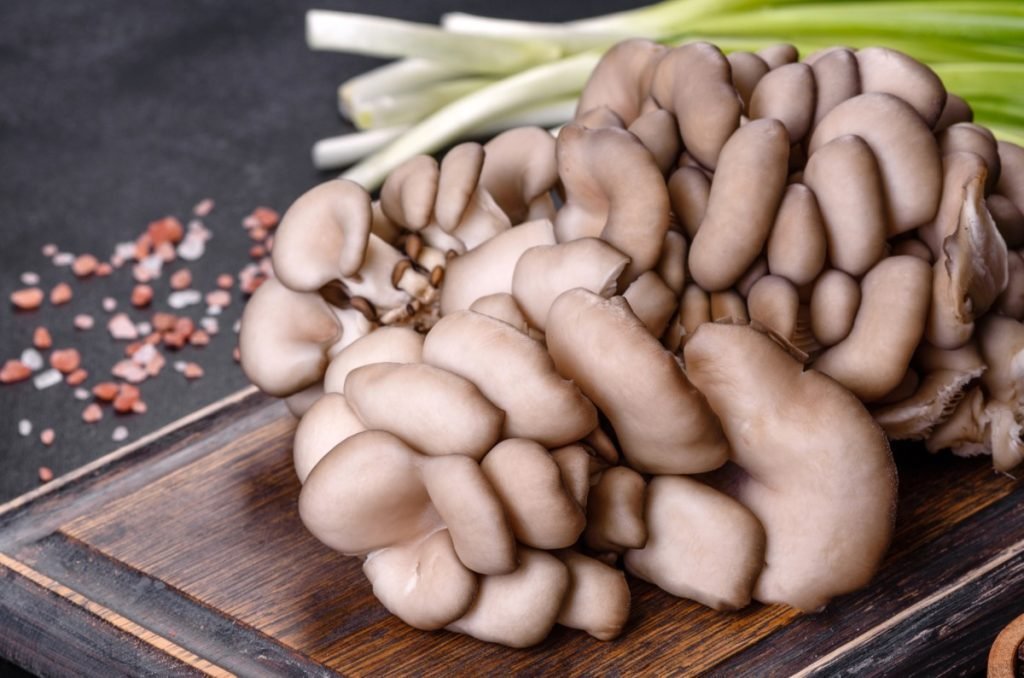Navigating the world of mushrooms can be overwhelming, with so many varieties each claiming numerous health benefits.
It's frustrating when you're unsure which mushrooms offer the best nutrients for specific health needs like heart health, diabetes, or mental well-being. The abundance of choices often leads to confusion and missed opportunities for optimal health.
Our comprehensive guide demystifies the healthiest mushrooms you can eat and which are organically grown right here in Australia. We delve into each type, highlighting their unique health benefits, nutritional profiles, and culinary uses, making it easy for you to make informed, health-boosting choices.
15 Healthiest Mushrooms in Australia
1. Shiitake Mushrooms - Best for Immune Support
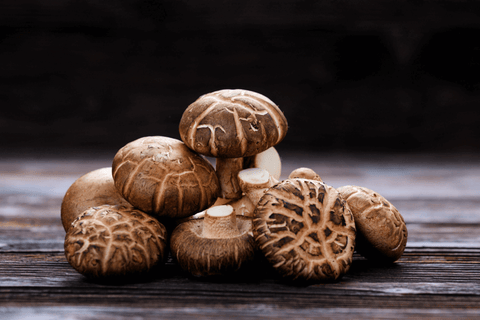
Shiitake mushrooms are celebrated for their immune-boosting properties. Rich in polysaccharides like lentinan, they enhance the body's resistance to infections and have been studied for their anti-cancer effects.
Shiitake also supports cardiovascular health by helping to lower bad cholesterol levels.
Nutritional Profile:
- High in B vitamins.
- Vitamin D.
- Selenium.
- Iron.
- Contains bioactive compounds like eritadenine.
Culinary Uses:
These mushrooms are ideal for stir-fries, soups, mushroom galette recipe, and as a meat substitute. Their rich, umami flavor enhances a variety of dishes.
2. Portobello Mushrooms - A Versatile Nutrient Powerhouse
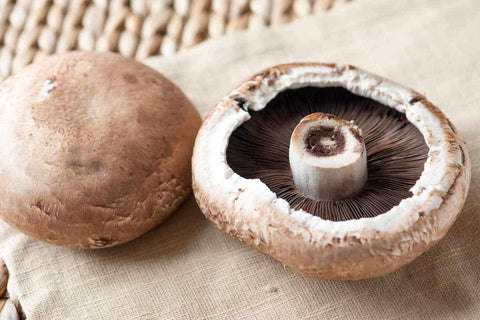
Portobello mushrooms are excellent for overall health, offering a good source of fiber, potassium, and antioxidants. They are known for their potential in regulating blood sugar levels and improving digestive health.
Nutritional Profile:
- Rich in niacin.
- Copper.
- Phosphorus.
- Contains both soluble and insoluble fiber.
Culinary Uses:
Perfect for grilling and stuffing due to their large size. They make a great meat alternative in burgers.
3. Cremini Mushrooms - Ideal for Digestive Health
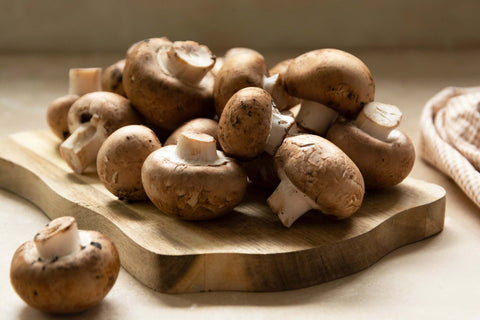
Cremini mushrooms, being high in antioxidants, aid in reducing inflammation and supporting digestive health. They are also beneficial for maintaining bone health due to their high vitamin D content.
Nutritional Profile:
- Contains selenium.
- Zinc.
- B vitamins.
- A good source of protein and fiber.
Culinary Uses:
Versatile in use, great in salads, pasta, and as a pizza topping.
4. Chanterelle Mushrooms - Boosting Cognitive Health
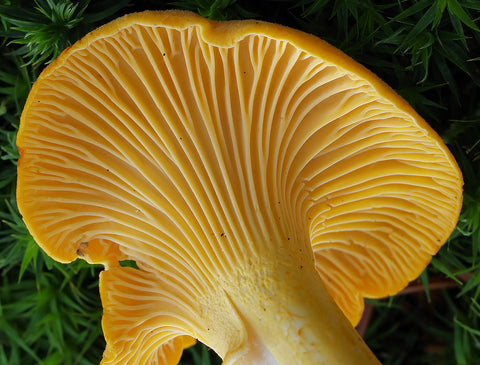
Chanterelles are known for their cognitive health benefits. They are rich in B vitamins, which aid in brain function and improving memory. Their anti-inflammatory properties also make them beneficial for those with arthritis.
Nutritional Profile:
- High in vitamins C and D.
- Potassium.
- Contains significant amounts of iron and dietary fiber.
Culinary Uses:
Excellent in creamy sauces, omelets, and for sautéing with garlic and herbs.
5. Oyster Mushrooms - Champion for Heart Health

Oyster mushrooms are particularly good for heart health. They contain compounds that help reduce cholesterol levels and promote healthy blood vessels.
Nutritional Profile:
- Rich in niacin.
- Riboflavin.
- Pantothenic acid.
- High in antioxidants and beta-glucans.
Culinary Uses:
Ideal for stir-fries, soups, omelets, chorizo sage tart, and as a meat substitute due to their delicate texture.
6. Lion’s Mane Mushrooms - Enhancing Mental Health

Lion’s Mane is unique for its benefits to mental health. It's known to improve cognitive function and has potential in reducing the symptoms of anxiety and depression.
Nutritional Profile:
- Contains bioactive substances that have beneficial effects on the brain, heart, and gut.
Culinary Uses:
Great in pasta dishes and as a seafood substitute due to its texture.
7. Maitake Mushrooms - Diabetes and Weight Management Ally
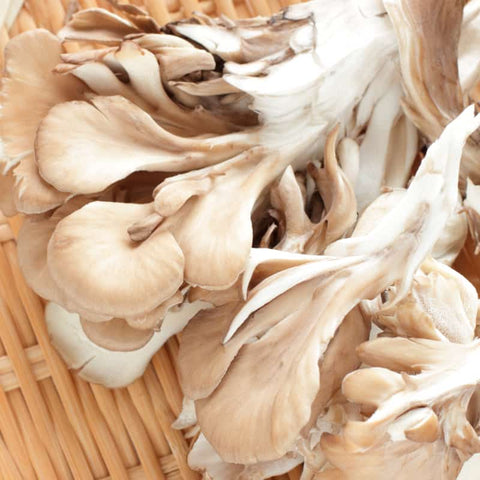
Maitake mushrooms are beneficial for blood sugar control, making them ideal for diabetes management. They also aid in weight loss and have been studied for their cancer-fighting properties.
Nutritional Profile:
- High in antioxidants.
- Beta-glucans.
- Vitamins B and C.
Culinary Uses:
Works well in stir-fries, grain dishes, and as a pizza topping.
8. Reishi Mushrooms - The Stress Buster
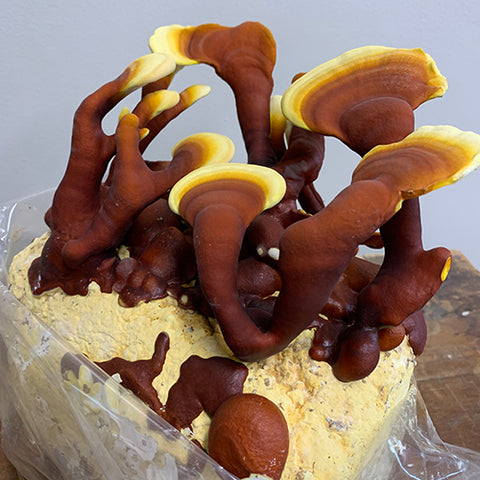
Known as the "mushroom of immortality," Reishi is great for stress reduction and boosting the immune system. It's also used for its calming properties, aiding in better sleep and overall well-being.
Nutritional Profile:
- Rich in triterpenoids.
- Polysaccharides.
- Peptidoglycans.
Culinary Uses:
Commonly used in teas and soups for its medicinal properties.
9. Turkey Tail Mushrooms - Immune System Warrior
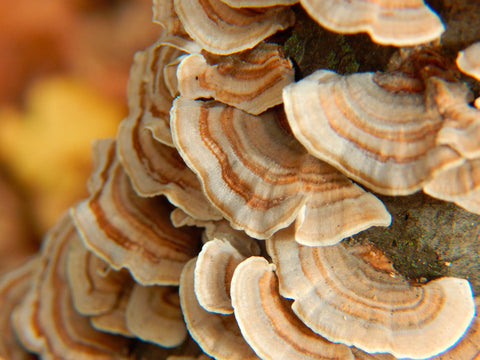
Turkey Tail is renowned for its immune-boosting properties. It's often used in conjunction with cancer treatments to enhance the immune system.
Nutritional Profile:
- Contains a variety of powerful antioxidants and polysaccharopeptides.
Culinary Uses:
Mainly used in teas and supplements due to its tough texture.
10. Chaga Mushrooms - The Antioxidant Powerhouse
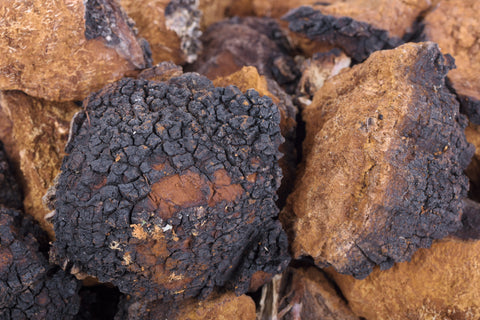
Chaga mushrooms are a powerhouse of antioxidants, making them excellent for anti-aging and general well-being. They also support immune health and have anti-inflammatory properties.
Studies have shown that chaga can help improve acne, psoriasis, and can also help with skin issues
Nutritional Profile:
- High in antioxidants, particularly superoxide dismutase.
Culinary Uses:
Commonly consumed as a tea due to its bitter taste.
11. Morel Mushrooms - For Bone and Brain Health
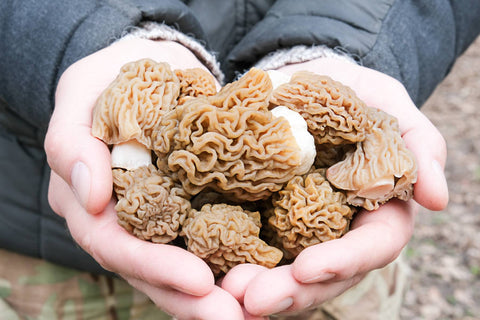
Morels are known for their benefits to bone health due to their high vitamin D content. They also support brain health and are rich in antioxidants.
Nutritional Profile:
- Contains high levels of vitamin D.
- Iron.
- Antioxidants.
Culinary Uses:
Excellent in risottos, pasta dishes, and as a gourmet side.
12. White Button Mushrooms - The All-Rounder
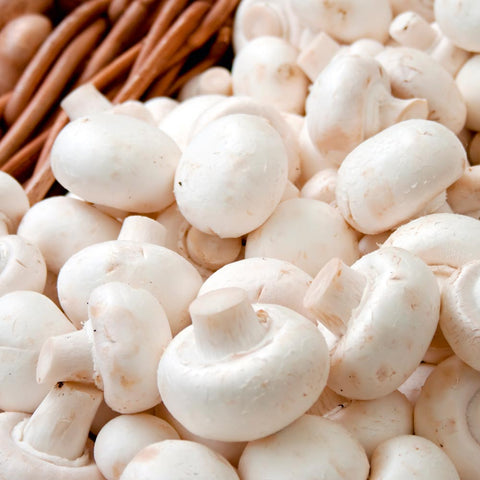
White Button mushrooms are beneficial for overall health, supporting immune function and providing a good source of several vitamins and minerals.
Nutritional Profile:
- Rich in selenium.
- B vitamins.
- Potassium.
Culinary Uses:
Extremely versatile, great in salads, soups, and as a side dish.
13. Black Truffle Mushrooms - Luxurious and Nutritious

Black Truffles are not only a culinary delicacy but also offer health benefits such as improved heart health and antioxidant properties.
Nutritional Profile:
- High in antioxidants.
- Fatty acids.
- Contains essential minerals.
Culinary Uses:
Used to enhance flavor in gourmet dishes, oils, and butters.
14. Enoki Mushrooms - Ideal for Gut Health
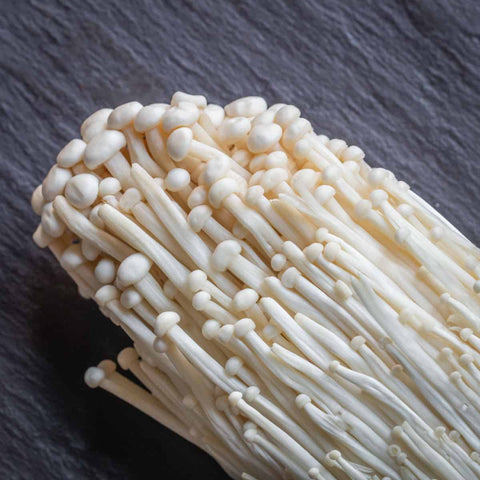
Enoki mushrooms are great for digestive health due to their high fiber content. They also have immune-boosting properties. They may also help prevent heart disease and boost brain health as discussed in this masterpiece we did.
Nutritional Profile:
- Rich in B vitamins.
- Antioxidants.
- Dietary fiber.
Culinary Uses:
Common in Asian cuisine, great in soups and stir-fries.
15. Cordyceps Mushrooms - The Energy Booster
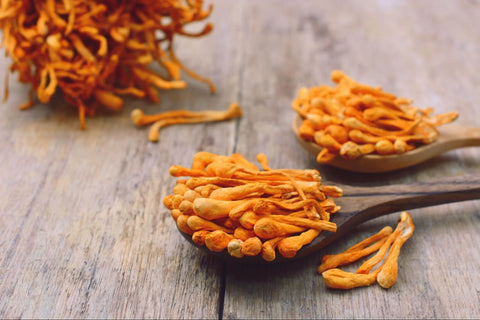
Cordyceps are known for boosting energy and athletic performance. They also have anti-aging and potential anti-tumor properties.
Nutritional Profile:
- Contains unique compounds like cordycepin and polysaccharides.
Culinary Uses:
Mainly used in supplements and powders for its health benefits.
Final Words
Embracing mushrooms opens up a realm of health benefits, from boosting your immune system to enhancing mental health.
Our guide has illuminated the path to understanding the unique advantages each mushroom offers. Whether it's the immune-boosting power of Shiitake or the cognitive support of Lion’s Mane, incorporating these fungi into your diet can lead to significant health improvements.
Remember, the right mushroom can not only elevate your meals but also your overall well-being. Start exploring these natural wonders and experience the transformative power of mushrooms in your health journey.

